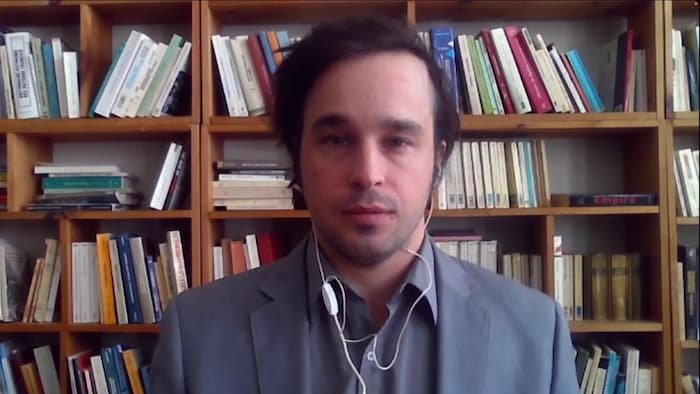The US$20 billion lawsuit by the promoters of GNL Quebec against the Canadian government will be heard in 2025. Canada, for its part, argues that the court should not be seized in this case.
The closed hearing is expected to last approximately two weeks in early December 2025, depending on the schedule.
The request for arbitration was filed in February 2023 before the International Center for Settlement of Investment Disputes (ICSID).
The company Ruby River Capital LLC approached this private body of the World Bank Group to seek compensation for Ottawa’s rejection in 2022 of its natural gas liquefaction plant project planned in the Saguenay.
The GNL Québec project was valued at a total of $14 billion. A 780-kilometre gas pipeline connecting northeastern Ontario would transport natural gas from western Canada to the Saguenay liquefaction terminal.
Ruby River Capital LLC is part of two companies owned by GNL Quebec promoters Jim Illich and Jim Breyer.
GNL Québec believes that the rejection of its project is arbitrary and that it is in violation of certain articles of the North American Free Trade Agreement (NAFTA) and the Canada-US-Mexico Agreement (CUSMA).
Provisions no longer in force, according to Ottawa
The Canadian government submitted a brief this summer setting out its arguments. Ottawa maintains in the more than 300-page document that the file does not fall under ICSID.
The Canadian government claims to replaceNAFTA ofCUSMAin July 2020, extinct
the provisions ofNAFTA relied upon by GNL Québec in its request for arbitration and that they had therefore expired.
Ottawa also claims that the government and Quebec’s rejection of the liquefaction terminal project, which the company called Énergie Saguenay, was in the public interest.
The rejection of the Énergie Saguenay project was a measure taken in good faith, fell within the democratic mandate of the governments of Canada and Quebec and was motivated by the dangers associated with greenhouse gas emissions, the risks associated with the project to populations of marine species and the impact on relevant indigenous groups.
GNL Québec did not want to comment on the matter on Sunday.
A lawsuit paid for by an external financial fund
Researcher Colin Pratte, of the Institute for Socio-Economic Research and Information (IRIS), regrets that this pursuit is being carried out at no cost to the promoters of GNL Québec via an external financial fund.
The lawsuit filed in February 2023 specifies that the funds received to conduct the lawsuit came from third-party funding. The identity of the individuals and entities supporting this fund is not specified.
This lawsuit is funded by a third-party hedge fund outside of the lawsuit, which is paying GNL Québec’s legal costs in exchange for a portion of the damages the company may or may have obtained.
explains Mr. Pratte.

Researcher Colin Pratte, from the Institute for Socio-Economic Research and Information. (Archive image)
Photo: Radio-Canada
This lawsuit, in turn, represents significant sums for Canadian taxpayers, he points out.
At present, GNL Québec does not have to pay court costs, as they are covered by this financial fund.
It is therefore a trial conducted at zero cost to GNL Québec, compared to Canada, which must defend itself at a cost of several million dollars in legal fees.
The researcher emphasizes that this prosecution is the most important in the history ofNAFTA. He recalls that courts such as ICSID is criticized.
These prosecutions take place in courts parallel to the state. These are international bodies which are the subject of various criticisms, as it is claimed that they undermine the democratic capacity of states.
he emphasizes.
A possible out-of-court agreement, which can also be expensive
The member for Jonquière, Mario Simard, who is the spokesman for Natural Resources for the Bloc Québécois, fears that this lawsuit will cost taxpayers dearly, even if an out-of-court settlement is reached.
Several tens of thousands of dollars could be awarded as part of a settlement, he suggests.
I have the impression that what the financial foundations are trying to do is to recover part of the money that was put into implementing the project, to develop the project.
What they are looking for is an out of court settlement. If that happens, if there’s an out-of-court settlement, well, it’s still the rest of us who will pay collectively for bad mutual fund business decisions.
It is public money that does not go to housing, that does not go to the health network, that does not go to serve Quebecers and Canadians.
he adds.
The MP regrets that GNL Québec does not respect what was said during the environmental assessment process.
GNL Québec told us when it was operating charm that they would respect the decision of BAPE [Bureau d’audiences publiques sur l’environnement]also told us that there was no public money that would be invested in this project. Today we see a very bad corporate citizen
he raises.